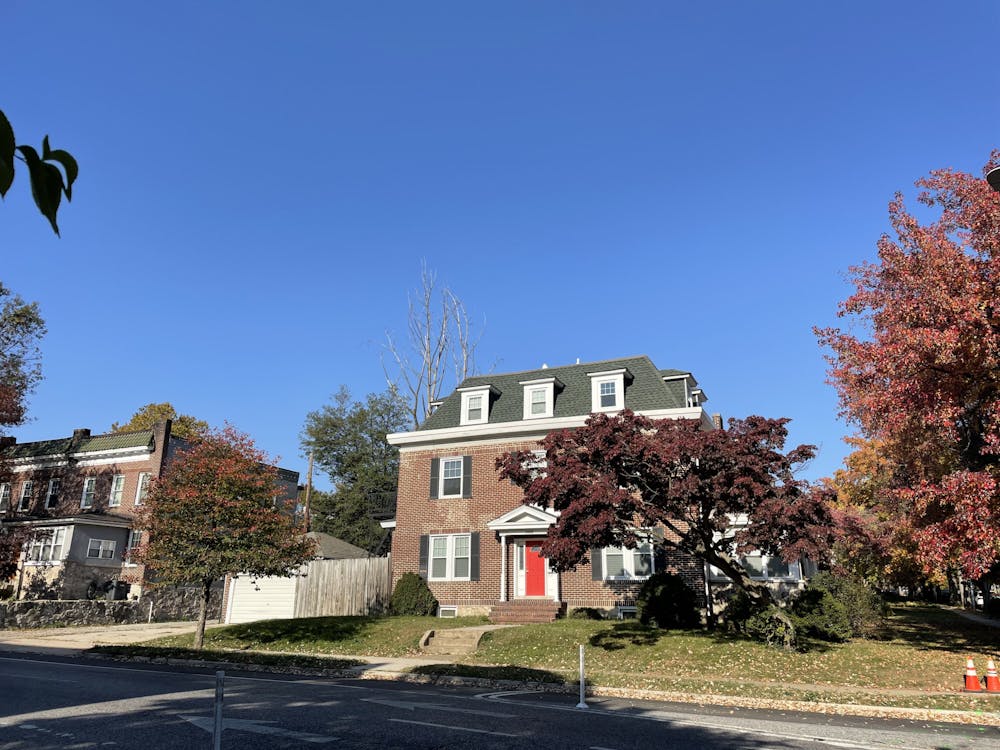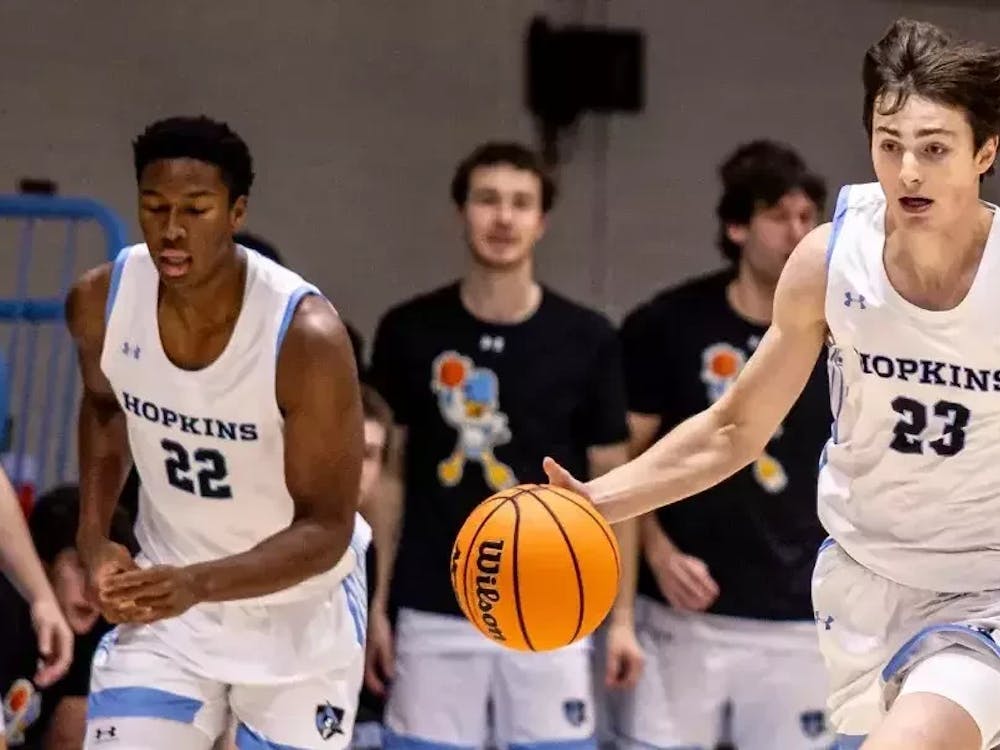The Office of Campus Safety and Security (Campus Security) alerted Hopkins affiliates about an alleged intentional drugging incident that was reported to have taken place at a party at the Sigma Phi Epsilon fraternity house on Oct. 30. in an email on Nov. 1.
In the email, University administrators noted how they are responding to the incident.
“The incident has been reported to the Baltimore Police and is under investigation by the university,” they wrote.
In an email to The News-Letter, Campus Security clarified that the Baltimore Police Department did not take a report from the University, which would have required the victim to speak to the police directly.
Campus Security gave no further details about the incident. Its original email listed ways to prevent becoming a victim of a drugging incident, including attending parties in groups, avoiding sharing drinks and alerting a friend if partygoers feel sick.
Students expressed outrage that the email only mentioned ways to prevent being a victim, without condemning the actions of the alleged perpetrator.
In an email to The News-Letter, junior Sigrid Edson claimed this framing harms survivors and encourages further assaults.
“Unfortunately, it is safe to assume that among this email’s recipients are people who have chosen to drug, assault and abuse others and those who might choose to do so in the future,” she wrote. “While saying so much to the people they choose to hurt, what does this email say to them? It says that perpetrators are not responsible for the violence they commit, and that Hopkins will never hold them accountable for that violence.”
Senior Yvette Bailey-Emberson suggested in an interview with The News-Letter that a more comprehensive response to the incident could have been shared.
“They could have talked about the severity of how this is a really awful crime and how disgusting it is, and [they could have] mentioned, ‘We’ll take actions to accurately get justice and protect our students. And then in the meantime, here is how to protect yourself,’” she said. “I don’t think they are wrong in saying these are steps to protect yourself at a party, but that’s the only thing they’re saying. [They are] not acknowledging at all the fact that it is [the University’s] students doing what’s wrong.”
Senior Karnika Mehrotra, an undergraduate representative on the Provost’s Sexual Violence Advisory Committee (SVAC), voiced her frustrations in an email to The News-Letter, claiming the University’s response sets back efforts to hold perpetrators accountable like those promoted by the Center for Health Education and Well-Being (CHEW) and SVAC.
“Facilitating behaviors, especially at an institutional level, perpetuate a culture permissible to harm. This also flies in the face of effort[s] groups like CHEW and SVAC put forth, such as the consent campaign,” she wrote.
Vice Provost for Student Health & Well-Being Kevin Shollenberger, Vice President for Public Safety Branville Bard and Vice Provost for Institutional Equity Shanon Shumpert sent a follow-up email on Nov. 5 apologizing for the language used in the email.
“The message included a series of safety tips, and soon after it went out we received important feedback from members of our university community that the framing and language of those tips implied that responsibility for prevention of an incident like this lies with the victim,” they wrote. “This was a mistake on our part, and we apologize. The type of conduct that was alleged—intentional drugging without consent—is illegal and abhorrent. A person subjected to such a crime is never at fault.”
The email also reiterated that the incident is still under investigation and provided a list of resources for students.
In an email to The News-Letter, Shumpert wrote that while the Office of Institutional Equity (OIE) cannot comment on an ongoing investigation, the University is currently gathering information related to the incident and Sigma Phi Epsilon is currently not permitted to hold events.
“The university is in the process of gathering all available information and evidence, and known parties and witnesses have been directed to cooperate. This is still an active investigation, and no conclusions or findings have been determined,” she wrote. “Members of Sigma Phi Epsilon have been directed by Student Affairs to not hold any social activities and events associated with being a recognized student organization until the investigation is concluded.”
Shumpert also described the protocols which are followed for investigating such incidents.
“OIE leads efforts to respond to and promptly resolve matters involving allegations of sexual misconduct, which would include allegations of involuntary drugging that involved sexual misconduct or attempted sexual misconduct,” she said. “Student Affairs leads the response to potential violations of the Student Conduct Code, which would include involuntary drugging in which sexual misconduct is not implicated.”
As of Nov. 9, Vice President for Communications Andrew Green stated in an email to The News-Letter that the University investigation is still focused on an intentional drugging.
“The nature of the investigation into the incident described in last week’s public safety message has not changed. We are continuing to gather information, but we currently have no reports of drug-facilitated sexual assault,” he wrote. “We continue to identify and interview witnesses but have no other update at this time.”
Green also commented on whether University affiliates will be informed about the results of the investigation, even if the findings are inconclusive.
“Due to privacy obligations, we do not provide information about the resolution of investigations or disciplinary matters with regard to an individual student,” he wrote. “Any sanctions related to a fraternity, if applicable, will be publicly reported on the Student Affairs website.”
Heather Kirk, chief communications officer for the national office of the Sigma Phi Epsilon organization, wrote in an email to The News-Letter that the headquarters are aware of the incident and are involved in the investigation.
“The safety of guests and members is our top priority, so we take any allegation of this kind very seriously,” she wrote. “We are working closely with the university as we, alongside Johns Hopkins University, investigate the matter. The chapter is also fully cooperating with the investigation.”
Representatives of Sigma Phi Epsilon fraternity did not respond to requests for comment.
In an email to The News-Letter, senior Miso Rashed expressed concern over the behavior of fraternity members at parties.
“I’m not surprised considering how the frats here go out of their way to exclude other men and make sure they’re the only men in the party, making it pretty predatory,” she wrote.
There have been multiple alleged drugging incidents at fraternity parties in recent years. Last year, The News-Letter reported on seven incidents of alleged drugging at the Delta Phi (St. Elmo’s) fraternity house since 2017.
Eleanor Franklin, co-director of the Sexual Assault Resource Unit (SARU), asserted that the University should do more to prevent incidents like this from happening again in an email to The News-Letter.
“There have been countless times for the university to take these assaults seriously, and every time they fail us,” they wrote. “To send an email alerting us of yet another drugging at a fraternity house as if it were a traffic report and to further provide ‘tips’ on how we may avoid being drugged is a slap in the face.”
Sophomore Sai Dharmasena echoed these sentiments, citing the University’s lack of support systems in place to help victims.
“The University has [done] a really, really poor job... There's a reason [assaults] keep happening... I am also a victim of sexual assault, so this really hit me quite drastically,” she said. “The University has really no good mental health resources, which could help address these things. The Counseling Center and [Student Disability Services] are both not effective at dealing with these problems.”
Dharmasena planned the “Not My Campus” student protest, which occurred Nov. 8. The protest stemmed from criticism over the University’s response, and its attendees called for more infrastructure to prevent such incidents from occurring and the implementation of support systems to help victims.
Dharmasena also emphasized that she had worked to include people from a variety of demographics in order to create a unified front to demand University action.
“It's really important that the University take us seriously and realize they need to do better and improve,” she said.
This is an ongoing investigation. Anyone with information related to this incident can contact The News-Letter at news@jhunewsletter.com.
In the event of an immediate emergency, students should call 911 or Campus Security. Students who have experienced druggings can submit anonymous or named reports via the Universitywide reporting form Speak2Us. Students can also report directly to the Office of Student Conduct and Ethics or Fraternity and Sorority Life through their websites under their respective “Report an Incident” tabs.





